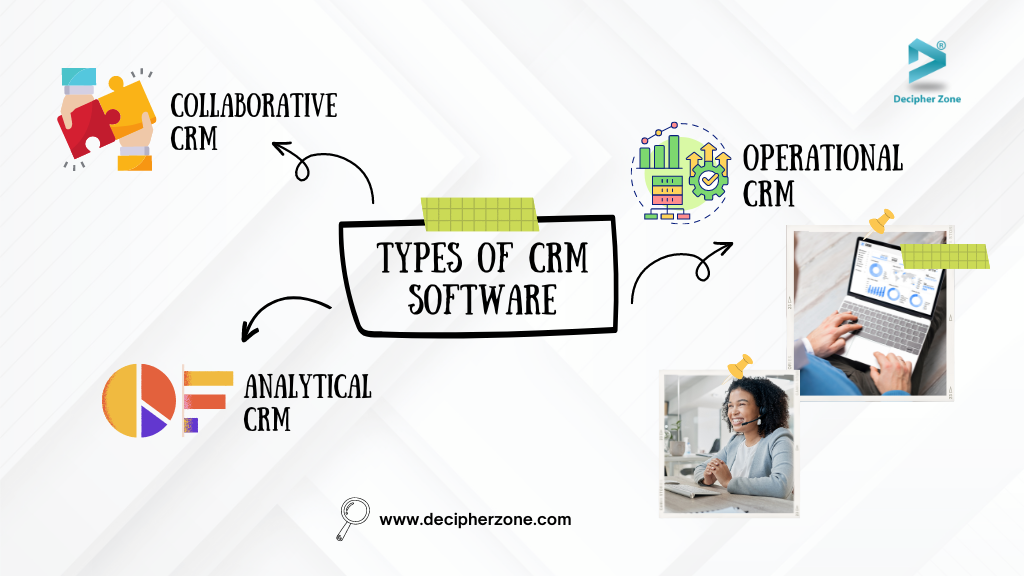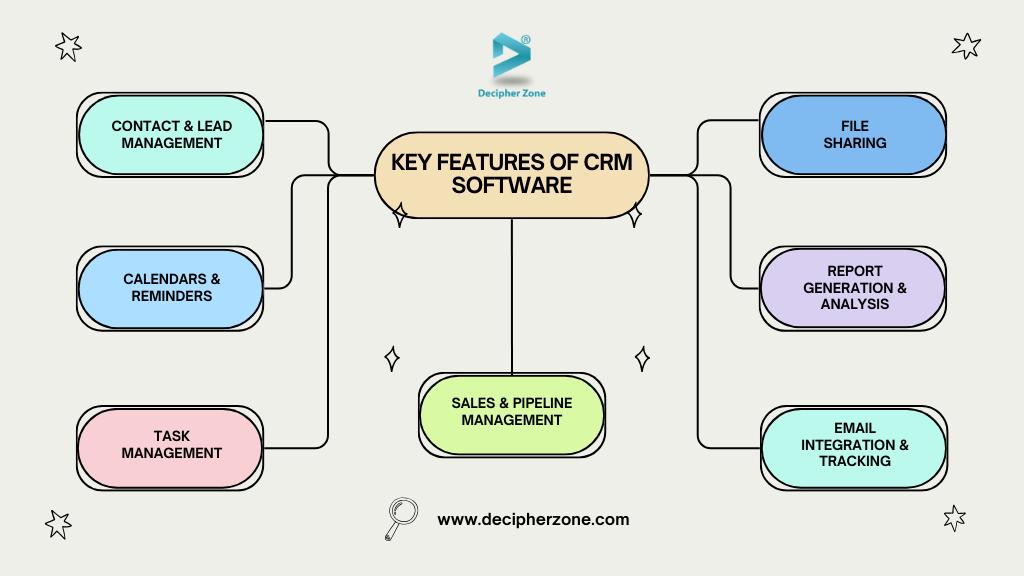A customer relationship management (CRM) system is a software application designed to help organizations handle customer data and improve their interactions with the business. Using custom-made CRM software enables enterprises to improve coordination, enhance lead quality, increase revenue, and gain competitive advantage.
Off-the-shelf software might appear as a quick solution for your business problems. But in the long run, when your business starts to expand it won’t serve the purpose. That’s where custom CRM systems come into view.
Even the revenue of customer relationship management software is expected to reach $131.90 billion at a CAGR of 10.59% by 2028 - according to a report by Statista. Therefore, it is the perfect time to invest in one tailored to meet your unique needs.
So, let’s understand what CRMs are all about and how they will really benefit your organization.
Read: CAD Software Development
What is a CRM Software?
Customer Relationship Management (CRM) system is a software application designed to help organizations handle customer data and improve their interactions with the business.
Developing Customer Relationship Management (CRM) software is highly valuable in the fields of marketing, customer service, and sales. This software helps streamline customer data to gain a comprehensive view of each customer, track sales targets, and make data-driven decisions, which in turn enhances personalization and targeted campaigns.
Note: This customer data may include purchase history, communication records, search history, and contact information.
Some of the industries that can leverage CRM software are FinTech, Healthcare, Logistics & Transportation, Real Estate, Education, Automotive, e-commerce, Insurance, and Travel.
Types of CRM Software
With CRM systems becoming indispensable for strong customer relationships with businesses, it is important to understand the types of CRM software in the market and choose the one that suits your requirements the most.
In a broad spectrum, customer relationship management software is divided into three categories, i.e., Analytical, Operational, and Collaborative. Let’s understand each of them a little more.
-
Analytical CRM
Analytical CRM will be the right choice for organizations that want to analyze customer data to develop their marketing strategies, find better opportunities, and forecast customer behavior changes.
The information gained using analytical CRM is used to create charts and graphs for a better understanding of the consumer data which can otherwise be extremely time-consuming and demanding. The major activities performed in this CRM system are data warehousing and data mining.

-
Operational CRM
This CRM software is designed to help businesses streamline their lead management, sales, customer conversion, and customer support processes. Operational CRMs provide sales personnel with comprehensive statistics and infographics to guide them in taking appropriate actions.
It also offers access to automatically analyzed data of potential customers and their preferences across teams, helping them create personalized customer experiences that lead to successful sales.
With operational CRM, data management is automated, saving time and effort from manual processes. The core benefits of using this CRM system include marketing analysis and sales automation.
Read: Top 10 CRM trends
-
Collaborative CRM
As the name suggests, collaboration CRM systems empower cross-functional team collaboration that streamlines team communications and shortens process execution time.
The main advantage of using collaborative CRM systems is that it eliminates the need to send numerous incomplete and inaccurate messages, emails, or tickets when dealing with customer services and channel management for better decision-making.
These systems are packed with features such as chat boards, discussion forums, file sharing, etc. to simplify operations.
Custom CRM Software Benefits
When choosing to invest in custom CRM software, the benefits that it will provide compared to off-the-shelf one should be considered. Some of the reasons why you should build a custom CRM software from scratch are:
-
The CRM software's automated follow-ups and lead-scoring tools assist sales teams in organizing their tasks, setting priorities, and closing transactions more quickly.
-
Being a centralized platform, the CRM system assists in managing leads, marketing campaigns, and customer services simultaneously without having to use different platforms for different purposes.
-
It also enables businesses to track performance and sales over a given time, allowing them to improve their strategies and increase sales and revenue at a steady pace.
-
With CRM software, enterprises can identify, foster, and connect with potential leads, resulting in reduced sales cycles and enhanced conversion rates in a shorter duration.
-
Compared to commercial software available in the market where the vendor has complete control over your data, with custom CRM software you get complete control and utmost security over data and compliance which helps safeguard the system from potential threats and bugs.
-
Decision-makers are kept informed by accurate data from across your organization, which enables them to react to market developments more successfully. Not only that but in-depth reports will show you how well your teams are doing and where they may still be strengthened.
Key Features of a CRM System
With a better understanding of customer relationship management (CRM) systems, it is time to look at the features you need to consider before developing one. These features are as follows:
Contact & Lead Management
This feature offers a detailed view of the customer database. It not only consolidates the contact information of a customer but also a full view of their engagement with the brand including their activity history and other records.
The contact and lead management feature allows businesses to personalize customer interactions while automating lead tracking and follow-ups to boost the probabilities of conversions.
Read: Importance Of Customer Relationship Management
Calendars & Reminders
The calendar and reminder feature assists businesses in keeping track of marketing campaigns on social media and emails while also sending reminders to the team regarding follow-ups with existing customers regarding the products and services they bought from them.

Task Management
It allows businesses to create, prioritize, and assign tasks to the team while enabling better coordination and collaboration between the teams. Apart from that, task management also helps keep track of the assigned tasks and ensures that it gets done either before or on time.
File Sharing
The file and content sharing feature enables team members to quickly and easily collaborate by sharing files, reports, data, infographics, and other content to complete a task at hand efficiently.
Report Generation and Analysis
This feature enables organizations to track all the data and activities of the retained, potential, and new customers. It also enables them to identify patterns and trends in the purchase history and create better sales strategies by leveraging analytics. Therefore, witnessing a massive growth in the ROI.
Email Integration and Tracking
Integration of the email feature in the CRM software allows businesses to write, maintain, and track emails sent to clients from within one workflow. It will also enable managers to launch personalized email campaigns and analyze the results to improve the course of action
Sales and Pipeline Management
CRM software provides firms with powerful capabilities for managing their sales pipeline. Precise tracking of opportunities makes forecasting possible. The sales process is fully automated, guaranteeing effectiveness and lowering the possibility of error.
Businesses may make data-driven choices by gaining insights into their performance through real-time sales analytics and reporting. This sales funnel visibility is quite helpful in determining which techniques are effective and where changes are required.
Read: CRM in Real Estate
Cost to Develop a Customized CRM System
On average the cost of developing a customized customer relationship management software that aligns with different business requirements can range from $15,000 to $250,000.
The variation in the development cost entirely depends on the complexity, integrated features, tech stack, number of resources, third-party integrations, etc. of the business.
Wrapping it up
CRM systems have made a powerful impact regardless of the industry that you work in. Overall, CRMs can be an effective and efficient tool to add to your business process that will boost the customer experience along with the return on investment.
That being said, if you are a business owner looking for a software development team with relevant experience and expertise in customer relationship management (CRM) software development, then you are in the right place.
We at Decipher Zone have a team of experienced professionals who have been working on different software development projects for years, making them the right choice for your CRM project endeavors.
So, what are you waiting for? Get in touch with our experts to get a customized quote today!





